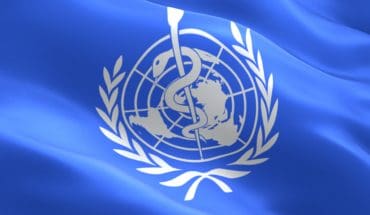How hard it is to say what we mean.
“I think like a genius, I write like a distinguished author, I speak like a child.” So said the distinguished Nobel prize winner, Vladimir Nabokov of his ability to express himself when speaking to others.
Think of the amount of ways we have of saying the unspeakable: I can’t find the words, words fail me, I’m lost for words. Or simply: I don’t know how to explain it. Or, more frequently and more aptly: “I dunno.”
And then silence.
Sometimes, it may seem as though the words necessary to express a particular thought, a particular feeling, don’t yet exist. They cannot, we might be tempted to conclude, because this way of feeling, of being, is surely unknown, undiscovered territory. Still, the essence, the meaning of what it is you wish, need, feel like saying, cracks inside you fistula-like, determined to make it’s way.
So, we cannot say what we mean to say, and instead find many ways to say many other things. Words tumble out but lead nowhere, because the real meaning lies in confronting a truth, a thought, a desire perhaps, which is impossible to contemplate and therefore, impossible to articulate.
Even, and often, the most erudite and ordinarily articulate of people will quite suddenly lose their grasp of language, midway through a difficult moment. And what a challenge it is for those without the power of communication to grapple with a means toward verbal expression, to live, as James Joyce said of Mr Duffy in The Dubliners, “a short distance from his body.”
So, what is happening when we find ourselves gabbling, speaking “gibberish” or not speaking at all? It is a kind of disconnect between what we are feeling, the tumult and clash of internal murmurings which seem to clamour for succour, and the ability of the voice to arrange this noise into something resembling sense. And yet, we feel compelled to try.
How creative we are at finding ways to attempt containment of the inexpressible: to count steps, wash hands, lock and relock windows, doors, gates, to rage and rant, shout at our loved ones, our children, to smash and destroy all around, or cry and cower, retreat and flail, to hold breath and keep holding it, to cut skin and watch blood pour, to starve the body, to vomit – the pain, the poison, the past, the present, the future.
Because the voice is an instrument; a delicate, fragile instrument which requires priming and nurturing. It is not always ready, not always able.
As babies our voices are coaxed into use through a kind of musical interchange, or human horse whispering which mother and neonate engage in. It is described by the Neurobiologist and child psychologist Colwyn Trevarthen, as a form of prosody involving the right brain hemisphere, and occurring beyond explicit understanding but having an undeniable impact on the development of the infant’s capacity to respond and express herself, and ultimately to soothe and manage her own distress.
As we grow up, we continue to relish these moments of interplay when we feel heard and listened to, attuned to. These moments continue to matter – they enable a secure attachment to our caretakers, and then create an expectation of others which effects our capacity to communicate. As the left brain comes on stream, developing language and explicit memory, we still seek
attunement from our carer just as we expect water and food, and it is only through moments of right to right brain understanding that these two halves of our extraordinary brain can work magnificently together to create the language of expression. Our brain/mind/body benefits from such nurture, using its plasticity, even in old age, to adapt and change and flourish in response to perhaps, a never experienced before, complete communication. It is so subtle in the making, an attuned response, but it is the Holy Grail of human achievements.
So, if you have ever wondered what the point is of the “talking cure” – this is the point and it is a simple one – to enable communication through a meeting of minds: through that most human of opportunities, the clamour is calmed, the way forward less fraught.
- The coming of age of erotic plasticity - 8th May 2016
- What’s the point of the “Talking Cure”? - 7th April 2016
- Male libido is a let down - 23rd March 2016







